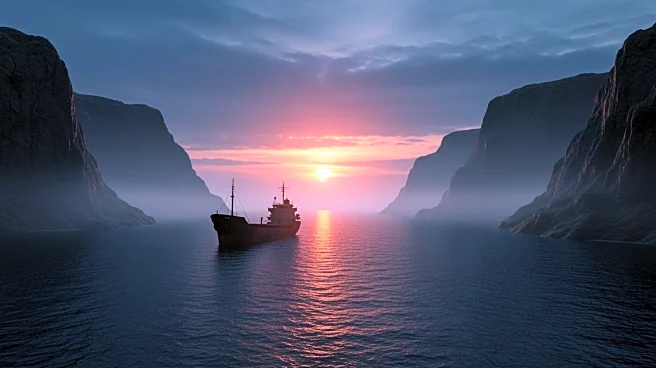What's Happening?
Iran has seized a Marshall Islands-flagged tanker named Talara near the Strait of Hormuz, claiming the action is legally justified. This incident is part of a pattern of similar actions by the Iranian Revolutionary Guard Corps (IRGC), although such threats
had decreased recently. The seizure has heightened tensions in the Gulf region, which is a critical passage for global oil shipments. Iran's justification for the seizure is seen as an attempt to assert control and influence in the region.
Why It's Important?
The seizure of the tanker by Iran is significant as it impacts global shipping routes and oil supply chains, potentially affecting international oil prices and market stability. The Strait of Hormuz is a strategic chokepoint, and disruptions can have wide-reaching economic consequences. The incident reflects ongoing geopolitical tensions in the region, with implications for U.S. foreign policy and military presence in the Gulf. It also highlights Iran's strategic use of maritime actions to exert regional influence.
What's Next?
The international community, including the U.S., may respond with diplomatic or military measures to ensure the security of shipping lanes. Further incidents could lead to increased military presence in the region or sanctions against Iran. The situation may prompt discussions on maritime security and international law regarding freedom of navigation. Stakeholders will likely seek to de-escalate tensions to prevent further disruptions.
Beyond the Headlines
Iran's actions in the Strait of Hormuz underscore the complex interplay of regional power dynamics and the strategic importance of maritime routes. The incident raises questions about the balance between national sovereignty and international maritime law. It also highlights the potential for regional conflicts to impact global economic stability and the importance of diplomatic efforts in conflict resolution.















